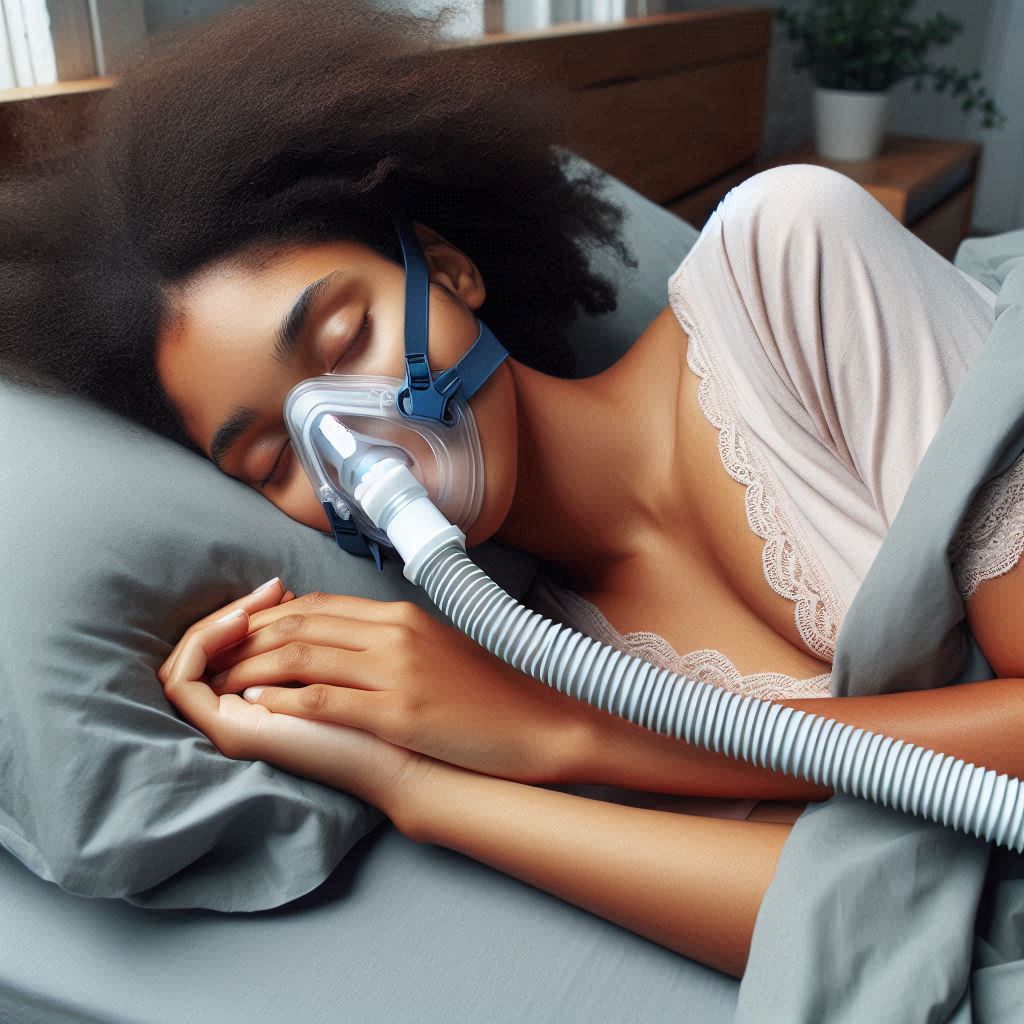
by Tara E. l March 20, 2025
Many people think of sleep apnea as loud snoring. It’s much more. Sleep apnea in Black women is a serious health issue that often goes unnoticed. It disrupts breathing during sleep, leading to oxygen deprivation, poor rest, and dangerous health risks. When left untreated, it can take a toll on the entire body—affecting the heart, brain, metabolism, and even pregnancy outcomes.
Black women are at a higher risk of this sleep disorder, yet they are less likely to be diagnosed or treated. This means many Black women unknowingly suffer from serious health consequences. Understanding the full impact of the sleep disorder is the first step in advocating for better sleep and overall well-being.
How Sleep Apnea Harms Your Health Podcast
The Hidden Dangers of Sleep Apnea
1. Sleep Apnea and Heart Disease
🚨 Higher Risk of High Blood Pressure – Sleep apnea causes repeated drops in oxygen levels, which triggers stress hormones that increase blood pressure. Black women already have higher rates of hypertension, making the condition an even greater threat to heart health.
🚨 Increased Risk of Stroke and Heart Attacks – Oxygen deprivation at night puts extreme stress on the cardiovascular system. Studies show that untreated sleep apnea can double the risk of stroke and increase the chances of heart attacks.
🚨 Heart Failure and Irregular Heartbeat – This sleeping disorder disrupts normal heart function, leading to heart failure and atrial fibrillation (irregular heartbeat), which can cause dangerous blood clots.
2. Sleep Apnea and Diabetes
- Higher Blood Sugar Levels: When deprived of oxygen, the body struggles to regulate blood sugar. This increases the risk of insulin resistance and type 2 diabetes.
- Weight Gain and Metabolism Problems: Sleep deprivation disrupts the hormones that control hunger, leading to overeating and weight gain. Black women with this sleeping disorder often struggle with weight, making this a cycle that worsens over time.
- Worsening of Existing Diabetes: Untreated sleep apnea can make it harder to control blood sugar levels in people with diabetes. This side effect increases the risk of complications like nerve damage and kidney disease.
3. Sleep Apnea and Brain Health
- Memory Loss and Brain Fog: Poor sleep quality makes it harder to concentrate. It causes forgetfulness and mental fatigue.
- Increased Risk of Dementia and Alzheimer’s: Research suggests that long-term sleep apnea can contribute to brain aging and increase the risk of Alzheimer’s disease, which disproportionately affects Black women.
- Mood Disorders and Mental Health: Interrupted sleep can cause irritability, anxiety, and depression. Many Black women struggling with fatigue may be misdiagnosed with mental health conditions.
4. Sleep Apnea and Pregnancy Risks
🤰🏾 Higher Risk of Preeclampsia: Sleep apnea increases blood pressure during pregnancy. This may lead to preeclampsia, a dangerous condition for both mother and baby.
🤰🏾 Gestational Diabetes: Poor sleep affects how the body processes sugar, leading to a higher risk of diabetes during pregnancy.
🤰🏾 Preterm Birth and Low Birth Weight – Babies born to mothers with untreated sleep apnea are at a higher risk of being born too early or with low birth weight, which can lead to lifelong health challenges.
5. Sleep Apnea and Early Death
Studies show that untreated sleep apnea increases the risk of early death from heart disease, stroke, and other health conditions. Many Black women who do not get diagnosed and treated face a shorter lifespan due to the long-term effects.
What Can You Do?
- Recognize the Symptoms – If you snore, wake up gasping, or feel tired all the time, talk to your doctor about a sleep study.
- Take Control of Your Health – It is treatable! CPAP therapy, oral devices, weight management, and lifestyle changes can make a big difference.
- Get Screened – Ask your doctor for a sleep study. Many tests can now be done at home.
- Advocate for Yourself – If a doctor dismisses your concerns, seek a second opinion. Your health is too important to ignore!
- Spread Awareness – Talk to other Black women about this sleeping disorder. The more we know, the better we can protect our health.
Final Thoughts
Sleep apnea is far more than just snoring—it’s a serious health risk that affects the heart, brain, metabolism, and pregnancy outcomes. Black women are at greater risk, but too often, they go undiagnosed and untreated. The good news? This condition can be managed, and treatment can significantly improve health and quality of life. If you or someone you love is struggling with unexplained fatigue, snoring, or health issues, take action today. You deserve restful sleep and a healthy future.
More from Mahogany Speaks to You

Sleep Apnea & Pregnancy: Protecting Black Mothers and Babies

Natural & Lifestyle-Based Solutions to Improve Sleep Apnea
Read more…COMING SOON

Why Black Women Are at Higher Risk for Sleep Apnea